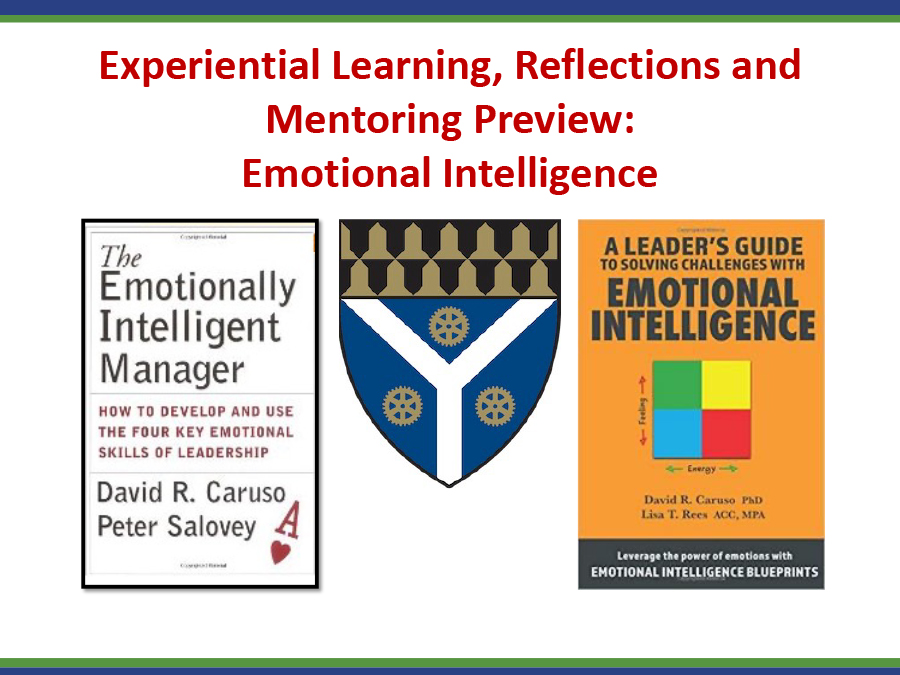EI Overview
Our daily lives are filled with emotions, and so are the lives of every person we interact with. Emotions can facilitate thinking and decision making. Emotions can also complicate thinking and decision making. Understanding emotions and their impact on our actions is an important leadership skill. Emotional intelligence is based on four skills: identifying emotions (becoming aware of emotions and expressing emotions), using emotions (letting emotions influence thinking and matching emotions to specific tasks), understanding emotions (discovering what emotions mean and conducting what-if analyses) and managing emotions (remaining open to emotions and integrating emotions into thinking).
The hard skills of emotional intelligence are based on a leader’s ability to perceive, facilitate, understand and manage their own emotions as well as the emotions of team members. Based on the realization that emotions contain data, emotional intelligence emphasizes the interaction between emotion and cognition, feeling and thinking, and passion and reason. Rational thinking involves emotions and the two topics cannot be easily separated. Moods can be conflated with emotions though each are distinct. Moods endure for a long period of time and create a steady state condition while emotions have a shorter duration that are triggered by specific events.
As with other intelligences, emotional intelligence can be measured and quantified. The Mayer Salovey Caruso Emotional Intelligence Test (MSCEIT) is a tool to measure emotional intelligence in the perception, facilitation, understanding and managing dimensions. The Emotional Intelligence Blueprint guides leaders though four steps to maximize team effectiveness: mapping how the leader and others feel, matching a mood to solve a challenge, understanding what made individuals feel a certain way, and moving an individual’s emotion to increase effectiveness.
Seminar Review & Practicum Preview
Presentation Slides
Additional Reference
- Why Does Affect Matter in Organizations - Sigal G. Barsade and Donald E. Gibson, Academy of Management Perspectives, February 2017 (link)
- Developing Leaders of Character with Emotional Intelligence - David Caruso and Lisa Rees, Journal of Character & Leadership Development, Winter 2019 (link)
- The Ability Model of Emotional Intelligence: Principles and Updates - John Mayer, David Caruso, and Peter Salovey, Emotion Review, Volume 8, Issue 4, 2016 (link)


